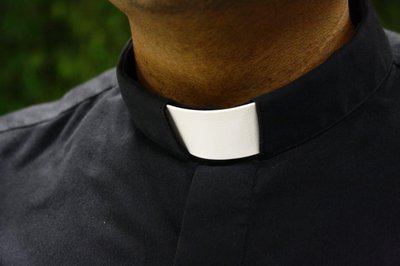Thoughts for the Day
Tuesday, 7th May 2024: To be called and chosen
Vocation Ministry Acts 15 Calling Priest
Reading : Verses from Acts, Chapter 15

Then the apostles and the elders, with the consent of the whole church, decided to choose men from among their member and to send them to Antioch with Paul and Barnabas. They sent Judas called Barsabbas, and Silas, leaders among the brothers, with the following letter: ‘The brothers, both the apostles and the elders, to the believers of Gentile origin in Antioch and Syria and Cilicia, greetings. Since we have heard that certain persons who have gone out from us, though with no instructions from us, have said things to disturb you and have unsettled your minds, we have decided unanimously to choose representatives and send them to you, along with our beloved Barnabas and Paul, who have risked their lives for the sake of our Lord Jesus Christ. We have therefore sent Judas and Silas, who themselves will tell you the same things by word of mouth. For it has seemed good to the Holy Spirit and to us to impose on you no further burden than these essentials: that you abstain from what has been sacrificed to idols and from blood and from what is strangled and from fornication. If you keep yourselves from these, you will do well. Farewell.’
So they were sent off and went down to Antioch. When they gathered the congregation together, they delivered the letter. When its members read it, they rejoiced at the exhortation.
(New Revised Standard Version)
Thoughts
It's thirty years since women were first ordained priest in the Church of England, and today I celebrate the thirtieth year of my priesting in Worcester cathedral. The road to this point was long and occasionally rocky. But if we note the words from Chapter 15 of the Acts of the Apostles (above) written to gentile Christians (that is to non-Jewish converts) it needed certain things to happen. For a person to be ordained they need to be 'called' by God, and they need to be 'chosen' by the Church. They also need to be equipped for the work by the Holy Spirit.
The candidate must of course believe that God is calling them to ministry, but while I felt that God was calling me to be a priest, the Church of England wasn't so sure they wanted women priests. Having been ordained a deacon in 1987 in Gloucester cathedral, priesting usually occurred the following year, but in the case of women the Church had not made a decision. Amazingly I never felt the need to agitate for change. I simply felt it would happen in God's time.
When General Synod voted in all three houses (Bishops, Clergy, and Laity) on 11th November 1992 for the Church of England to ordain women priests, another act had to occur. As we can see from the Acts reading, the Church leaders had to choose whom they would send into the mission field. Today candidates for ministry are carefully selected and trained, and only when the Church feels they are ready will a Bishop ordain them. The whole journey is a process that involves prayer and worship and a lot of listening to God, by all parties.
We may not all be called to be priests or ministers, but the journey has to start somewhere. Try asking God what He is calling you to do, sometimes the result is unexpected! We cannot leave it to others to answer the call. Oh and ignoring the call isn't viable, as the it keeps coming back.
Prayer
Collect for the newly ordained:
God our Father, Lord of all the world,
through your Son you have called us into the fellowship
of your universal Church:
hear our prayer for your faithful people
that in their vocation and ministry
each may be an instrument of your love,
and give to your servants
the needful gifts of grace;
through our Lord and Saviour Jesus Christ,
who is alive and reigns with you,
in the unity of the Holy Spirit,
one God, now and for ever.
Amen.
If you want to think further about how we hear God's voice this article is good. On the first page you can choose specific topics within the subject: